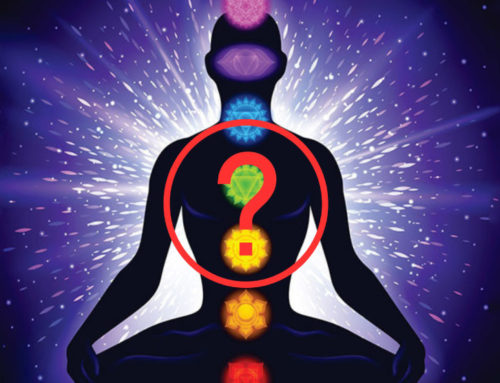Have you ever noticed that your family members can trigger you in ways that others cannot? You may be immune to the opinions of the majority of the planet, for instance, but your mom’s (or brother’s or daughter’s, or by extension, the person who reminds you of them) can throw you into a tailspin. Family members’ judgments can land where we didn’t even think we had an airport anymore. What is going on with that?
This fascinates me, so I took a good look at it.
Let’s begin simply: who or what do you think you are? I mean it, in it’s simplest form. Male? Female? Daughter? Spouse? Parent? Going further, are you defined by the “Ians” such as humanitarian, vegetarian, octogenarian? Or perhaps you identify by “Ist” – artist, activist, economist, scientist? Many of our roles are delineated by what we do (such as our work or hobbies) and others are things we feel we are. Our deepest identifications will be within this latter group.
So let’s take a look at what we think we are, because this is where we unplug the potency of those triggers! There is an intricate exchange of energy created in the roles we agree to play for one another. Roles are powerful identifications that come with multilayered beliefs. They are the pillars of the finite self we discussed in part 1 of this series. Roles are natural and normal for human beings, even essential for life here on the planet. We did choose a character to play, after all!
And yet, when we identify with a role as what we are, we are giving agreement not only to our version of the role, but to the other person’s as well because roles are 2-way agreements (mother/daughter, husband/wife, brother/sister, etc.). This means we are subject to the parameters of their beliefs, opinions, and projections as well as our own. This may or may not work out well for us. If the other’s beliefs and parameters line up with ours, voila – harmony! If not, we find ourselves in the land of triggers and volatility. Which, as always, is our invitation to move beyond the identification and into true freedom.
Let’s look at an example to bring this into focus. You may not subscribe to a fundamentalist Christian belief system, for instance, and may feel no judgment from the opinions of those who do. But if a family member (or significant other or close friend) adheres to these beliefs and the opinions the belief generates, you may find their judgment affects you where others’ does not. This is because you are identified with your role, let’s say mother, which means you are energetically enmeshed with the role they are playing, i.e. daughter or son. For you, mother might come with a certain set of parameters and expectations (such as being loved, honored, or respected). For them, mother may come with a different set of parameters (role model for what they value, provider, an admirable reflection of themselves, etc.).
Roles and identifications can create some of the most persistent and challenging patterns. The first step of moving beyond such a pattern is clear seeing. Clear seeing is always done from the space of neutrality, which means from a space beyond the identification. This means seeing from your eternal vantage point, the one transcendent of the finite self.
Try this. Imagine you are not one of your roles, the one that triggers you with the person on the other end (mother, daughter, father, spouse, sibling). They are just another person on the planet. How does this change your expectations, and even more importantly, how you feel? Imagine knowing and talking to that person as if they weren’t related to you. What shifts?
You may find it challenging to practice this non-attachment because of emotional entanglement, meaning you feel you would suffer through loss of relationship with them. OK, deep breath. These are roles, remember? Each of you has played a vast host of other relationships with the other. You are eternal. You cannot lose your relationship with this person. What is real cannot be lost, and what is illusory will always eventually fade. Both of you go way beyond your roles. Breathe again.
And now for the caveat: this is a powerful practice that can lead to untold levels of freedom, joy, and love! Because when we see beyond our identifications, we see that we are not the role, which means we are no longer bound by those agreements. Once we let go of any identification or attachment with the role, the pesky patterns dissolve and real Love emerges. Unconditional Love. Love without agenda, judgment, requirement, or need. Love that simple is. Presence.
Can you see how your identifications actually take you out of presence, and how shedding them brings you to into the heart of unconditional love? This does not mean relationships cease to exist. It means they are finally free. I have witnessed this transformation in my own family as I have let go of one role after another. And it is glorious. Because when we make this choice, this shift, we let go of the need for the conditional love inherent in the role. We are love, and in that being, unconditional love is experienced by all. This is why this action is the most loving thing you can do for yourself.
You are always the first beneficiary of your presence. You, your “small selfie.” The one you think of as “you.” Others then receive from that. This practice becomes the ultimate form of self-care and self-love. It’s beautiful, isn’t it? Our summation might be: What is the most unconditionally loving thing you can do for yourself? Let go of everything you think you are. Simple, huh? 😉
We will be going directly into this and more in Living Awake this month (livestream February 12, included in membership, which you can try for free here). Meanwhile, I’d love to hear your comments or questions below. Chime in! And please feel free to share as well as subscribe to my youtube channel to get other free teachings, sound transmissions, and more.
From my heart to yours –
Christine







